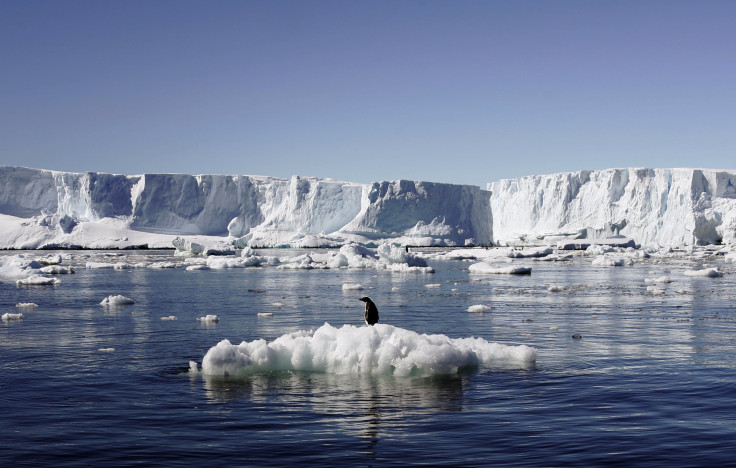Antarctica's Ice Shelves Thinning Faster Than Previously Believed: Study

If Antarctica’s ice sheet melts completely, it will raise sea levels by over 200 feet -- enough to flood the planet's land masses. Although this is not something that is likely to happen anytime soon, recent observations have detected several worrying phenomena on the continent.
Scientists recently found that over the past two decades, glaciers in West Antarctica have been losing as much water as the weight of Mount Everest every two years -- about 83 gigatons a year. Now, a new study by scientists at the Scripps Institution of Oceanography in California has found that not only is the ice cover in Antarctica receding, it is also thinning more rapidly than previously believed -- much like the ice cover in the Arctic.
The study, published Thursday in the journal Science, reveals that the thickness of Antarctica’s floating ice shelves, which act as doorstops and hold back its glaciers and ice sheets from spreading outward into oceans and raising sea-levels, has fallen by as much as 18 percent in some areas over the past 18 years.
“Eighteen percent over the course of 18 years is really a substantial change,” Fernando Paolo from the Scripps Institution and the lead author of the paper, said, in a statement. “Overall, we show not only the total ice shelf volume is decreasing, but we see an acceleration in the last decade.”
The researchers, who constructed a record of ice shelf thickness using data collected from the European Space Agency’s satellites between 1994 and 2012, found that the West Antarctic region was the worst-affected. As a whole, this region of the continent, which juts into the Southern Ocean toward the southern tip of South America, has witnessed a 70 percent increase in its average rate of loss of ice from the shelves in the last decade alone.
If the current rates of thinning continue, researchers estimate that the ice shelves restraining the unstable sector of West Antarctica could lose half their volume within the next 200 years -- something that scientists had previously believed would not happen for thousands of years. And, if the glaciers in West Antarctica were to completely collapse, it could raise global sea-levels by up to 4 feet, inundating several coastal areas and forcing a reassessment of current estimates.
“We’re faced with a planet that is changing in ways we don’t want,” Ted Scambos, a glaciologist with the National Snow and Ice Data Center in Boulder, Colorado, who was not involved in the study, told Climate Central.
© Copyright IBTimes 2024. All rights reserved.






















